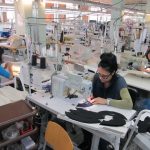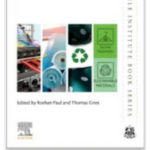Government is set to introduce measures to curb the “dumping” of clothing and other textile products into the country as it seeks to revive the industry. The Government will also review duties on clothing and the duty-free allowance individuals can bring into the country in line with the new industrial policy.The policy, launched last month, mainly seeks to restore the manufacturing sector’s capacity. The textile industry has been identified as one of the channels for the development of the industry.
“The new policy will review duties on a number of these (clothing and textile) products and the duty-free allowance that individuals can bring into the country,” Industry and Commerce Minister Welshman Ncube said in the new industrial policy document.
“During (implementation of) this policy it is (also) intended to enforce quality standards for incoming as well as pre-post shipment inspection in accordance with World Trade Organisation provisions,” he said.
“Checks will also be conducted on the authenticity of certificates of origin and clothing and blankets in transit to ensure they do not end up offloaded in Zimbabwe.”
Zimbabwe has seen an influx of clothing products from South Africa, Botswana and China, with some of the consignments crossing the borders without duty being paid for them due to lack of adequate controls at border posts. Apart from depriving Government of revenue, this has rendered locally manufactured goods uncompetitive. Minister Ncube said Government would tighten the border controls to plug the smuggling loopholes.
Minister Ncube said the policy would relax Southern Africa Development Community “rule of origin” which maintains a “double transformation”. This rule provides that in order to participate in preferential access, clothing must not only be made in Zimbabwe, but must also be produced from fabric made within Southern Africa, to enjoy duty-free access.
“The current policy seeks to relax this rule under Sadc through the request for waivers in the fulfilment of our commitment under the protocol,” said Minister Ncube. The sector, with the potential to create thousands of jobs, is highly adaptable and can operate from levels of small-to-medium enterprises to large corporates. Some of the attractive attributes for investors in the textile industry are low levels of capital, low energy use, huge scope of value addition, backward and forward integration.
The textile industry still boasts of much diversity, which includes cotton, polyesters, acrylic and other man-made fibre production bases in the country. High operating costs, high interest rates, obsolete equipment, perennial power cuts and high utility costs have stifled investment in the sector. According to reports, the textile and clothing industry registered a combined 10 000 job losses last year. This brought to just 3 000 the number of workers employed by the industry down from about 18 000 in the 1990s.
Furthermore, at least 11 clothing and textile companies are currently under judicial management. Kalahari Clothing Company has been placed under external administration while Bernstein has retrenched most of its workers, a weekly newspaper reported recently, citing the National Union for the Clothing Industry.
Saybrook Manufacturers has also been placed under a similar court-ruled reconstruction arrangement. Bulawayo-based Archer Clothing Company went into judicial management in December, with about 800 people losing their jobs.
Lancashire Clothing, Scottco which is owned by Aico Holdings, Chinhoyi-based Afroram Spinners, Merspin, National Blankets, Textile Mills Holdings, David Whitehead, and Modzone Enterprises are either facing serious financial constraints or are under judicial management.





